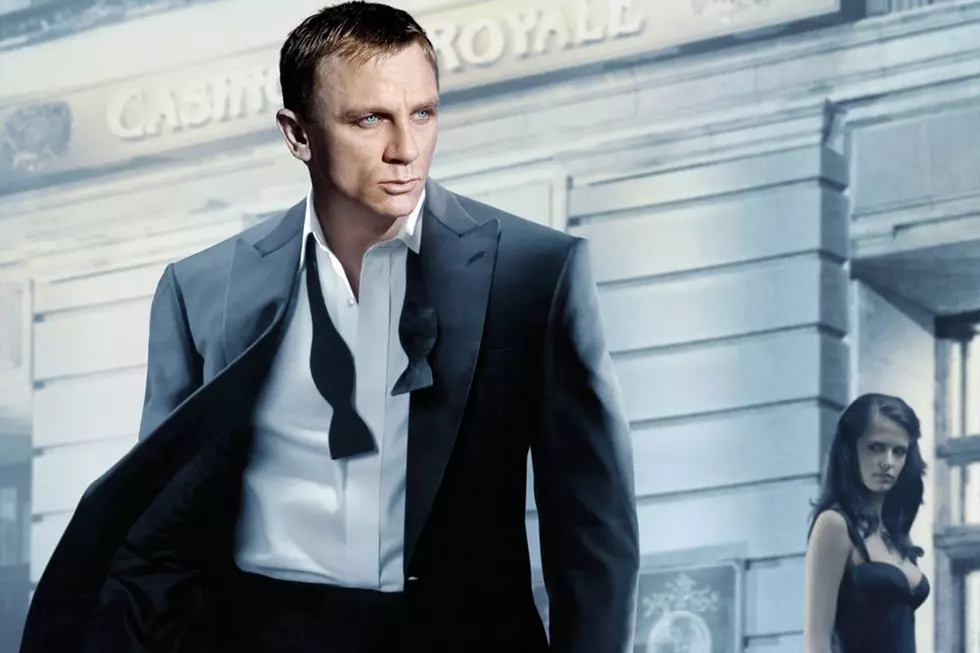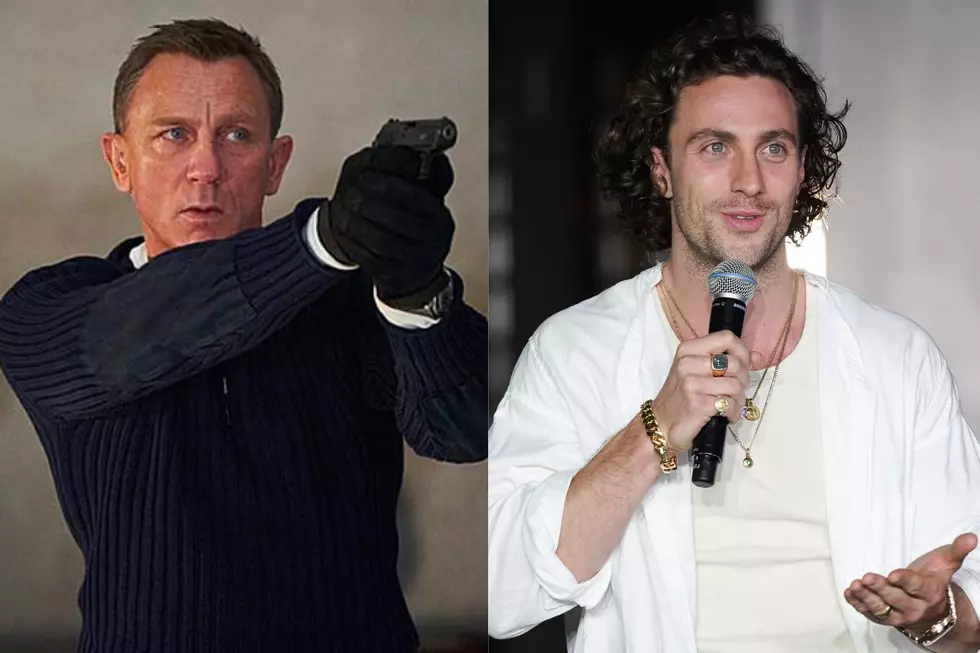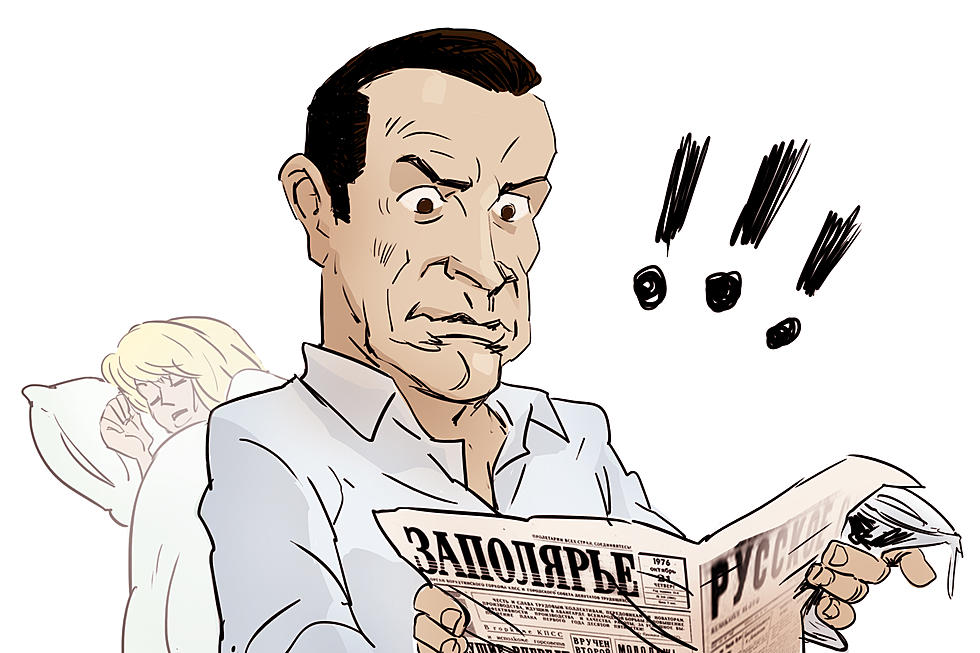
How ‘Casino Royale’ Rebooted James Bond for the 21st Century
In one of the most successful franchise reboots in movie history, 2006's Casino Royale transformed James Bond into a brutal, wounded, cynical action hero for the new millennium.
Gone were the gadgets and the Bond girls with silly names. Gone were the grinning double entendres and the plot lines that seemed to come from the purlieus of science fiction. Gone was the self-deprecating humor. All of this was a replaced by a new kind of hard-edged realism – embodied by actor Daniel Craig in his first turn in the role – that would alter the course of the franchise, for better and worse.
The re-imagining in the film is complete, starting with the opening in which Bond has not yet achieved the famed 00 status. He earns this by killing a rogue British section chief and his underling; soon after, he is given his first mission as Agent 007, which is to thwart a terrorist-financing banker named Le Chiffre (played here by Mads Mickkelsen, and in earlier adaptations of the Ian Fleming novel by both Peter Lorre and Orson Welles).
Watch the Opening Scene of 'Casino Royale'
Bond starts his pursuit of Le Chiffre by tracking down an African bomb maker in Madagascar, chasing him into his embassy and killing him in cold blood. Information from the bomb-maker's phone leads Bond to the Bahamas, where he wins a 1964 Aston Martin DB5 – the car he drove in several early iterations of the film franchise – in a poker game. He also discovers that Le Chiffre's plot is to destroy a new airplane at the Miami airport, thus tanking the manufacturer's stock, which the financier has shorted. Bond travels to Miami and averts this attack, earning the fury of Le Chiffre, who had promised a huge payout to the terrorist groups entrusting their funds in his care.
In order to make up the lost money, Le Chiffre – a genius mathematician and poker player – decides to host a $10 million buy-in Texas Hold'em tournament at the Casino Royale in Montenegro. Bond, of course, is sent to enter the tournament in an attempt to foil this plan too. This means that the British government must pony up the $10 million, which arrives in the care of one Vesper Lynd (Eva Green) a gorgeous British treasury agent.
Bond enters the tournament, finds out that one of the opposing players is CIA agent Felix Leiter (Jeffery Wright), and discovers that Le Chiffre has a remarkably obvious tell: poking his temple with his forefinger. Sensing that he's going to lose, Le Chiffre poisons Bond's drink – causing him to have to be resuscitated in the parking lot by Lynd – and then goes on to lose anyway. In retaliation, he captures Bond and tortures him in one of the most memorable of such scenes in the history of the franchise.
At the end of this scene, Le Chiffre's own people kill him when he admits he's willing to surrender to the British in return for immunity, and Bond escapes. Bond gives the winnings of the poker game to Lynd to deliver back to the British government, and the couple retreat to Venice to fall in love. Unfortunately, Lynd betrays him and keeps the money, leading to a climactic action scene in which their building in Venice sinks into the Grand Canal and Lynd is killed. The film closes with Bond capturing the man who was behind Le Chiffre the entire time, and announcing that his name is: "Bond. James Bond."
Watch the Trailer for 'Casino Royale'
One of the signal changes enacted in Casino Royale is the casting of Daniel Craig as Bond. None of the previous Bond actors had been particularly athletic, despite Sean Connery having been a bodybuilder. Instead, the franchise had tended to cast tall, dark-haired male model types. Craig, smaller, light-haired and with a middleweight boxer's physique and way of moving, provides a stark departure from this. This is matched in his performance with a tough-guy mien that borders on the sadistic (or the masochistic, as evidenced in the torture scene, in which Le Chiffre ties him in an open-bottomed chair and smashes his nether region with an improvised chain mace) and a refreshing lack of sentimentality.
This fearsome approach and stark worldview fit nicely in the post-9/11 moment, when neo-realist action films like Ridley Scott's Blackhawk Down and Paul Greengrass's The Bourne Supremacy were in the ascendant. The reboot also proved to be a fortuitous turn for the commercial prospects of the franchise, positioning it as the definitive adult blockbuster while the rest of the action movie world was slowly engulfed by superhero movies aimed at younger audiences.
Which is not to say that it is without its flaws. Martin Campbell's direction is not quite top notch – it borrows its parkour-laced opening sequence a little too heavily from the French film Banlieue 13, and many of the external sequences manage to somehow feel slight rather than grandiose – and it features a regrettable theme song by Chris Cornell.
There is also a downside to its solemnity, which has tempted the films following it in the franchise into edging towards an almost Christopher Nolan level of pathos. Gone are the lightness and leonine charm of the early Bond films, replaced by somber attempts at stories of redemption and brooding psychology, dark tales without much playfulness.
Is this late turn in the franchise for better or for worse? Neither. It's simply different: a different kind of Bond film, with different strengths and weaknesses, and its own new opportunities and new challenges. This is precisely what a reboot should do, and Casino Royale did it superbly.
Six James Bond Films That Were Never Made
More From Ultimate Classic Rock









